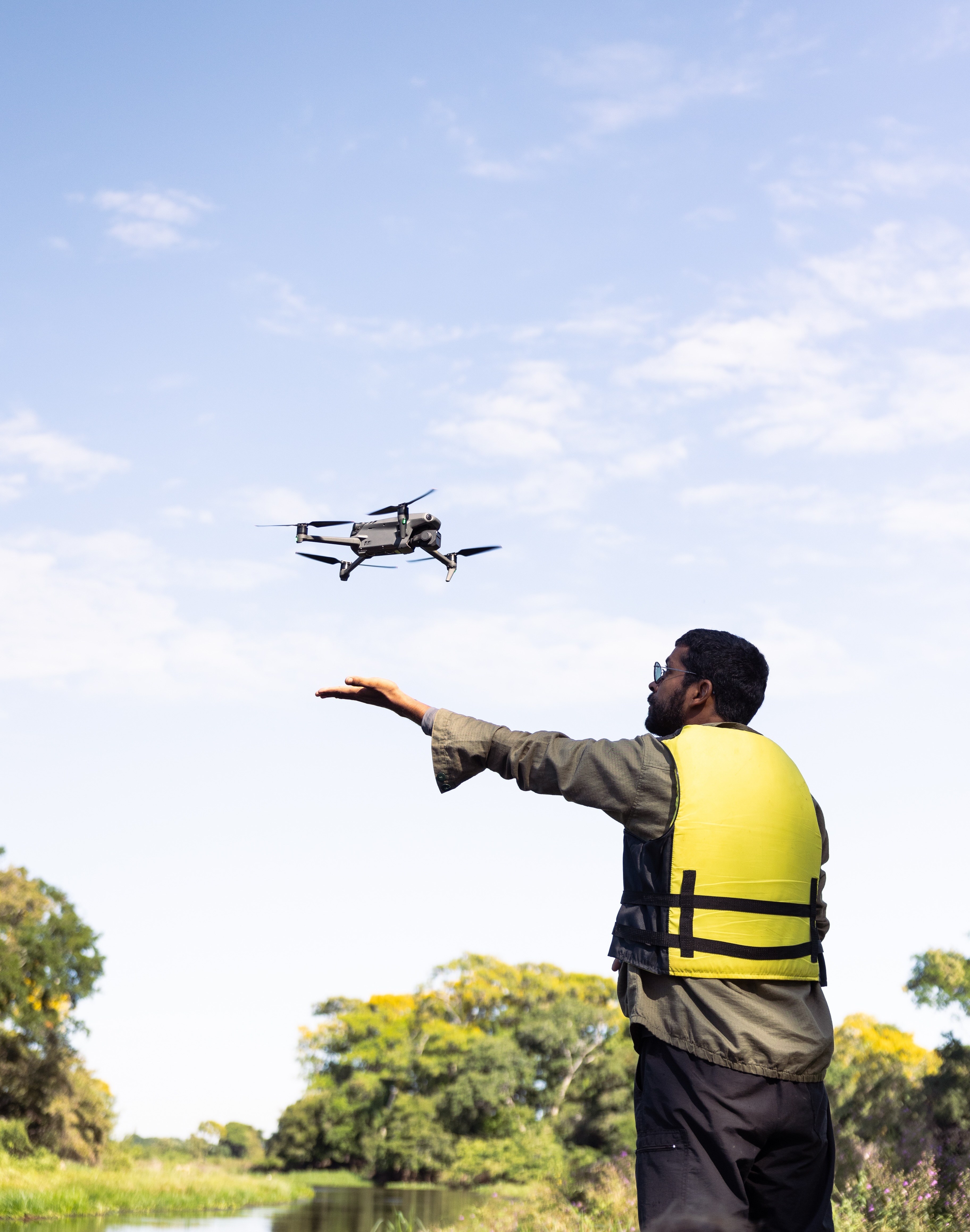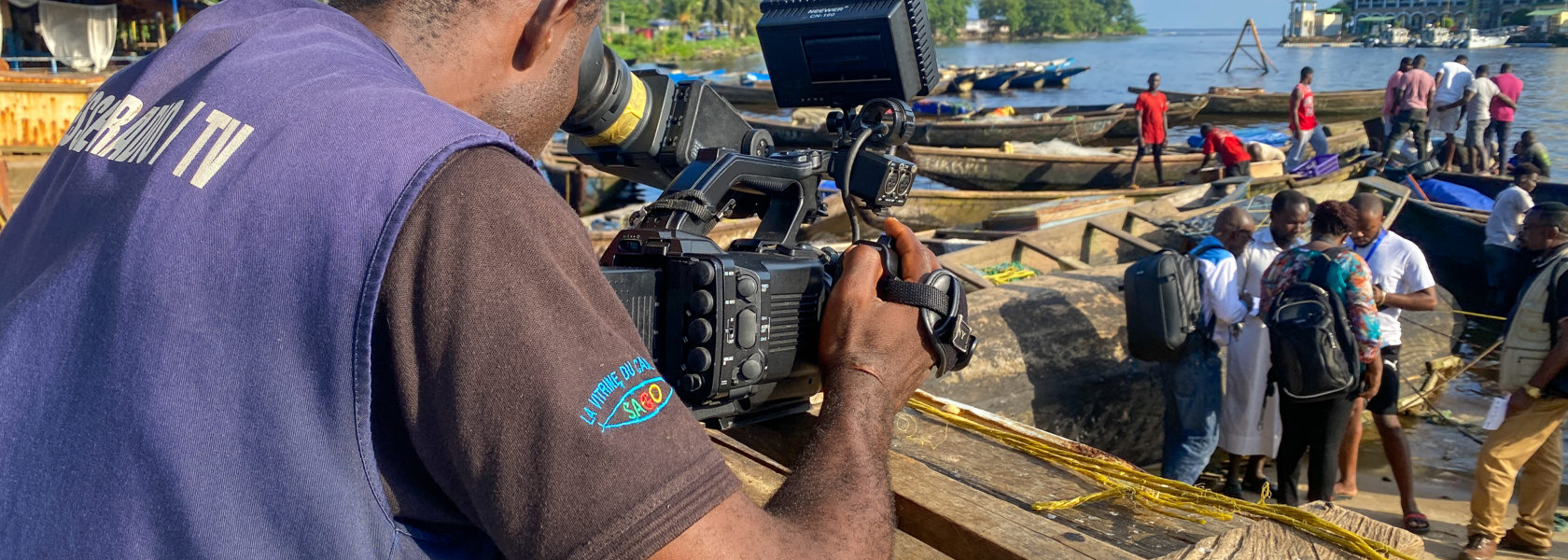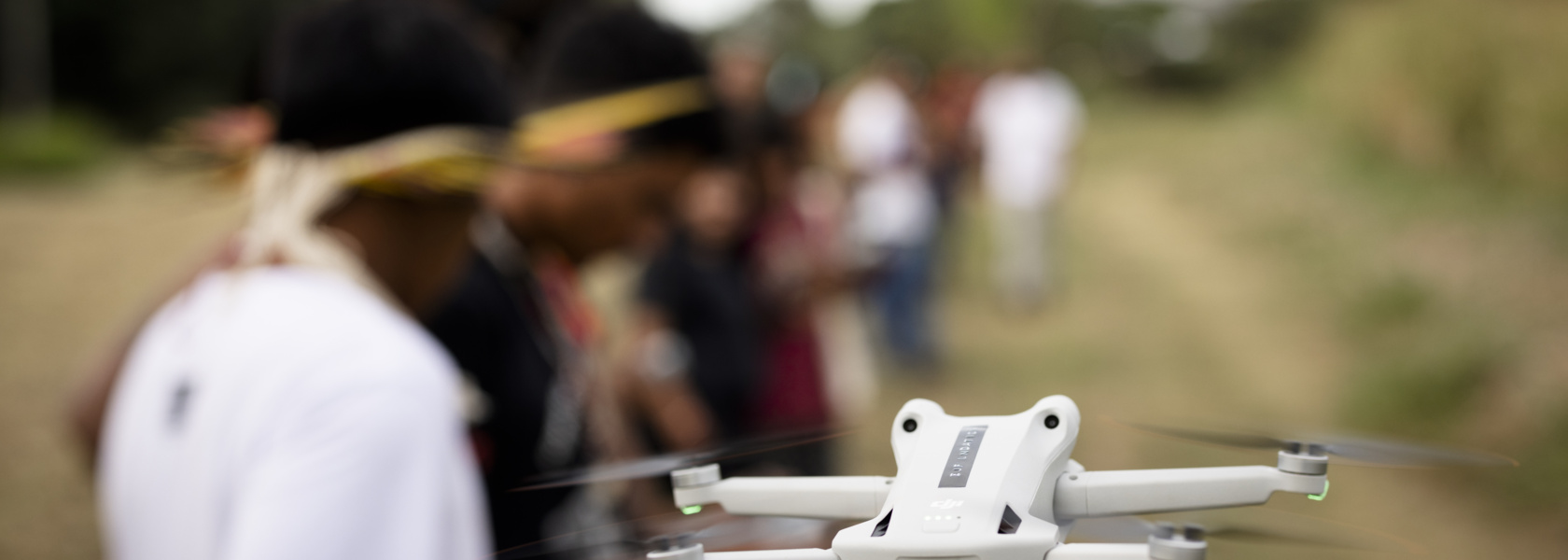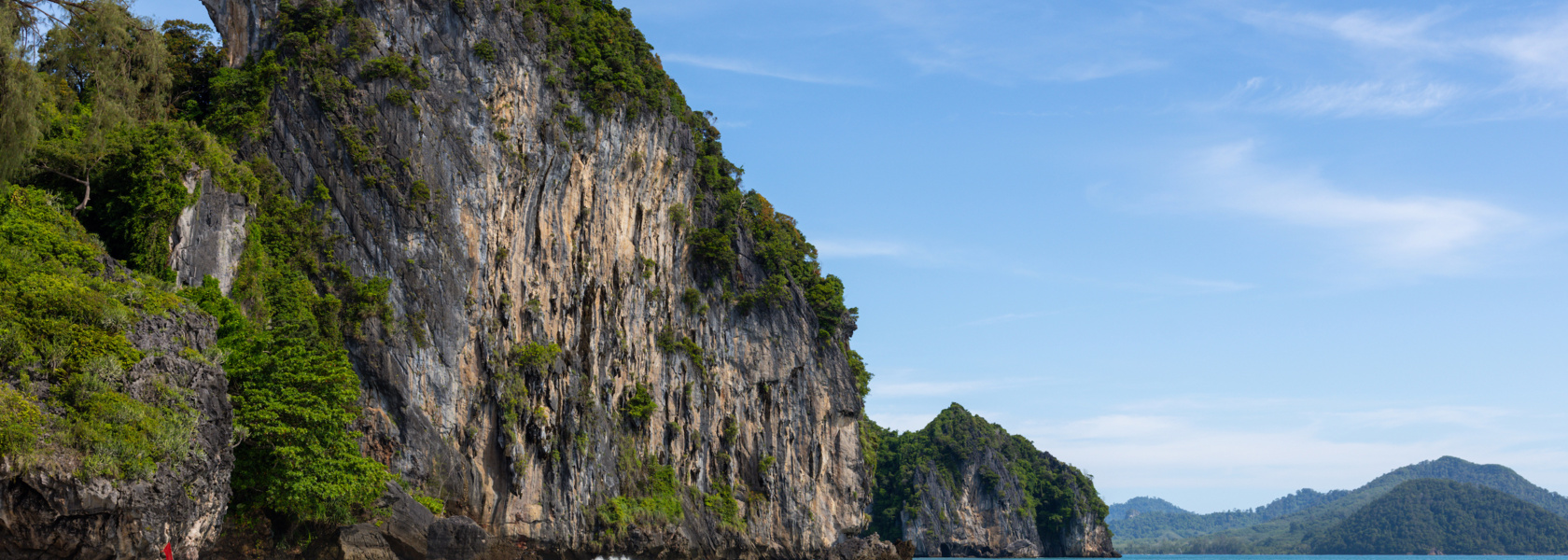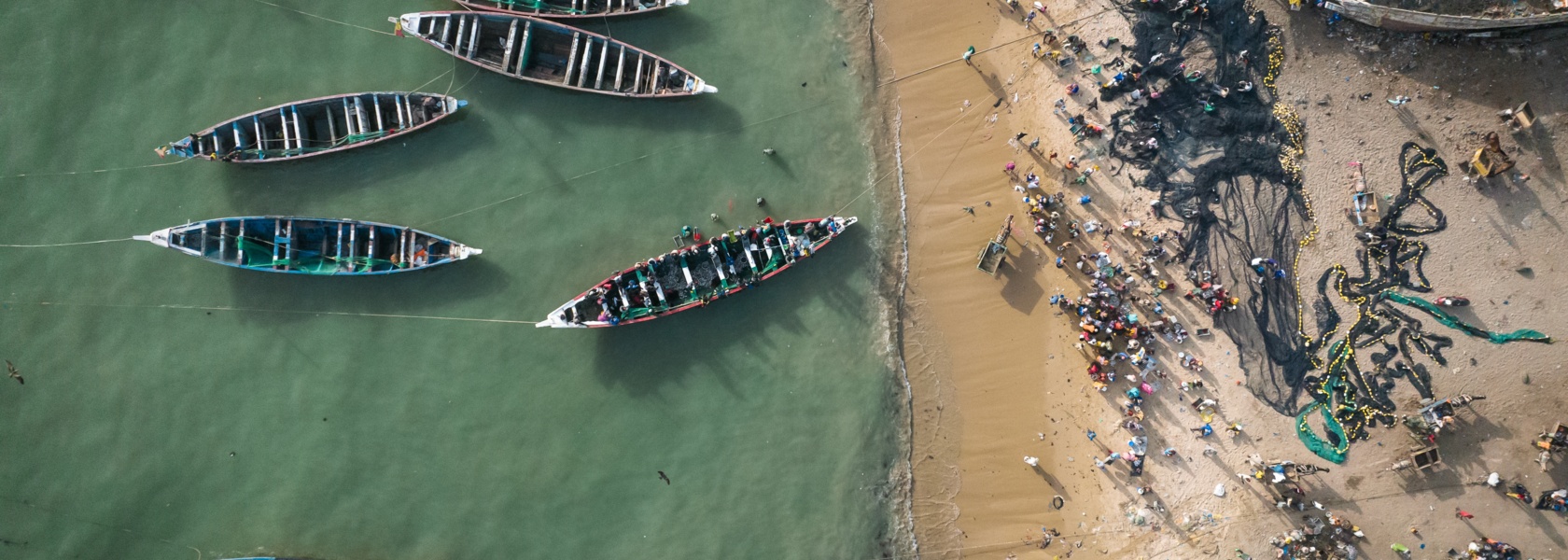It takes people to protect the planet.
EJF supports environmental defenders to investigate, expose and redress environmental abuses and associated human rights violations. We collaborate with the journalists, activists, small-scale fishers and Indigenous leaders who raise the alarm on threats to the natural world and their rights.
Environmental defenders envision a better future, and we help them secure it.
While our efforts differ across regions, our core approach remains:
- We increase defenders’ capacity to document, research and address environmental and related human rights abuses. We support their work by providing them with the necessary materials (drones, cameras, phones) and skills (storytelling, evidence recording, campaigning/or advocating) to drive change.
- We foster connections. We coordinate environmental defenders at local, national and global levels to strengthen their influence. We take local stories to the global stage. We mobilise small-scale fishers, build networks of journalists, connect Indigenous leaders and help them reach political decision-makers.
- We enhance grassroots advocacy. We integrate our work with defenders within our global campaigns to protect the ocean, climate, forests and wetlands. We make sure that their priorities inform ours, and work as a global team to protect our natural world.
Our Environmental Defenders campaigns
-

Strengthening environmental journalism
Find out more -

Elevating the voices of Indigenous activists
Blending technology and ancestral knowledge in Brazil's Pantanal wetlands
Find out more -

Uplifting ocean defenders
Accelerating change by supporting local leaders in marine conservation
Find out more -

EU-funded global toolkit for participatory fisheries governance
Enhancing the role of coastal communities in managing fisheries sustainably and fairly
Find out more
